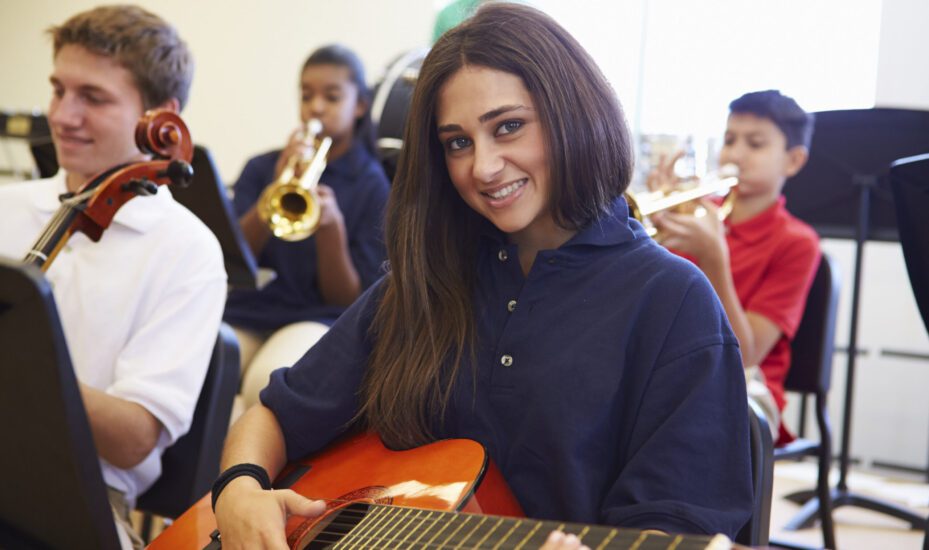“The theory of relativity occurred to me by intuition, and music is the driving force behind this intuition. My parents had me study the violin from the time I was six. My new discovery is the result of musical perception.” Albert Einstein.
The summer holidays are the perfect opportunity for students to learn to play a musical instrument. Traditionally, the lack of stimulation over the long vacation leads to a phenomenon called the Summer Slide. Here students lose a significant amount of the academic gains they made over the previous semester simply because they aren’t exercising their brains. Music is a wonderful way to exercise their brains and develop executive skills and higher cognitive functions.
Improved Executive Functions
Studies show that music has a positive effect on a child’s developing brain and nervous system. A long term study from the Boston Children’s Hospital found that children who had been taking music lessons for at least two years had better developed executive skills. Executive skills include the ability to regulate behavior, to focus, to initiate tasks and to organize their time—skills vital to being a successful student. “Musical training may actually help to set up children for a better academic future,” said Senior Investigator Nadine Gaab, from the Laboratories of Cognitive Neuroscience.
Music Improves Memory
Music also helps students to develop a better working memory and sustained focus. This is part of the executive skills set and these two factors help students to pay attention in class and retain the information they learn there. The same skills are essential when they sit down to do an assignment, to study and to read. If your child is easily distracted and struggles to complete tasks, music lessons will help to develop those parts of the brain that make these things easier.
Better Vocabulary
A study from Stanford University found that mastering a musical instrument improved functioning in those areas of the brain responsible for vocabulary which may have a positive influence on reading and language skills. Reading, speaking, and communication in general relies on the ability to differentiate syllables—a skill known as phonological ability. Music lessons help to develop your child’s phonological ability.
Higher IQs
A 2004 study by E. Glenn Schellenberg from the University of Toronto discovered that music led to an increase in the IQs of his six-year-old participants. When the subjects were given voice and piano lessons, the children tested three points higher on their IQs than the control group who did not receive music lessons.


